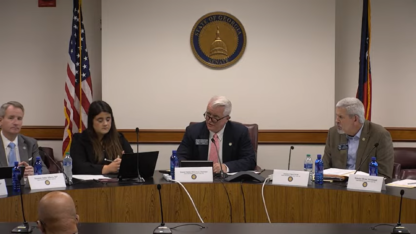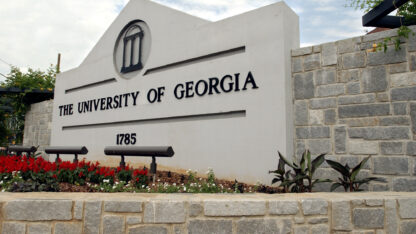Budget On Georgia Nuclear Plant Level, Uncertainty Remains

Georgia Power reported Friday the cost to build a nuclear plant was holding steady, but there’s significant uncertainty whether those numbers will stick.
The Southern Co. subsidiary owns a 46 percent stake in two new reactors under construction at Plant Vogtle, near Augusta. The utility now expects to spend roughly $7.5 billion to finish the project, or about 22 percent more than originally expected.
The budget released Friday declined slightly from the company’s last financial filing in February. If they hold, the level spending figures would be welcome news for investors and customers. By law, Georgia Power’s customers will ultimately pay for construction costs unless state regulators object and force losses onto shareholders. However, project watchdogs say multiple problems could still raise costs.
The nuclear plants under construction in Georgia and South Carolina were approved before natural gas prices plummeted. As it became cheaper to build gas-fired plants, major power companies scrubbed plans to build nuclear reactors nationwide. If it wants to grow, the nuclear industry must prove it can build without the construction delays and cost overruns common years ago.
So far, the proof is lacking. The companies designing and building the plant, Westinghouse Electric Co. and Chicago Bridge and Iron Co., announced a new construction schedule this year that pushed back the completion of the first reactor in Georgia to June 2019, followed by the second reactor a year later. That means the construction effort is now running about three years behind schedule.
Even that latest schedule has slipped by three months, though Georgia Power officials said it may be possible to get back on track. The utility blamed Westinghouse for recent errors in design work that required a review by federal regulators. The plant owners are still working with subcontractors to make sure they can deliver complicated, high-quality parts on time.
Ongoing lawsuits between the plant’s owners and its builders over costs could also raise the final price tag.
Finishing the nuclear plant remains cheaper than halting construction and building gas-fired power plants instead, according to analysts for both regulators and the power company. Georgia officials say new rules restricting carbon emissions from power plants make the nuclear reactors more attractive in the long run.
“We still have a solid project, a solid benefit to customers,” said Joseph “Buzz” Miller, Southern Co.’s president of nuclear development.
Utilities in South Carolina building an identical nuclear plant have run into similar delays and cost overruns. South Carolina Electric & Gas Co. reported this month that its share of costs had increased by roughly $1.1 billion.
9(MDAxODM0MDY4MDEyMTY4NDA3MzI3YjkzMw004))








